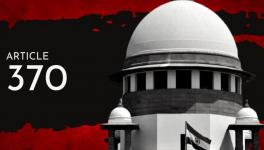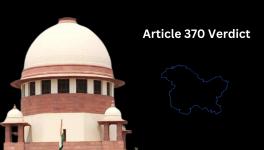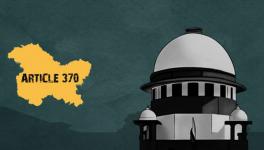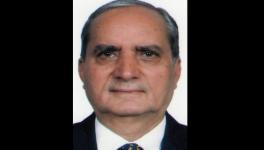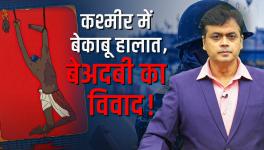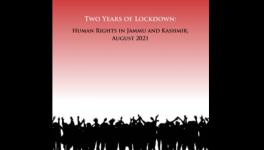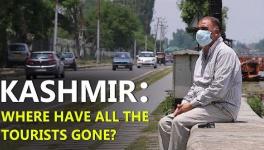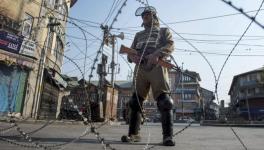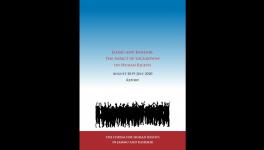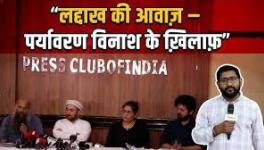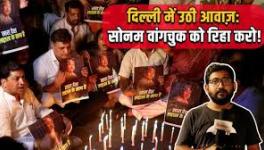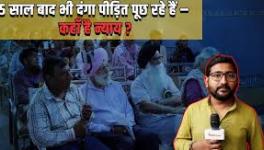Art 370: Nervousness Punctures Confident Bluster
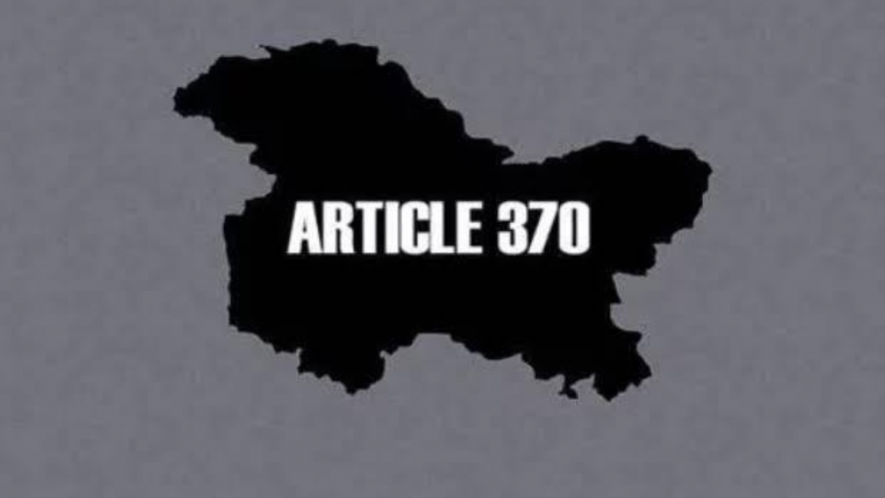
The Narendra Modi-led Bhartiya Janata Party (BJP) government has a habit of boasting about its decision-making abilities and does not tire of touting the abrogation of Article 370 as a stupendous feat in service of the “nation”. But a garrulous government is not a mark of strength, it could be one trying to suppress the stench emanating from its Kashmir policy.
Even in times like these, where the country’s rulers, with a little “help” from their corporate media friends, have made a habit of propagating that everything they do or touch turns to “gold”, it is possible for the media to expose the government, at times by simply reporting what is told to them correctly.
Deeptiman Tiwary of the Indian Express provides readers with the official thinking on Kashmir based on a briefing by an unnamed “official” source in New Delhi. Of course, what remains unsourced can be denied easily, if need be. But what the report reveals is that for all the big talk about two-year planning going into preparing for abrogating Articles 370 and 35A, and boasting of taking all possible scenarios into account, the government is showing unmistakable signs of being caught unawares and finding the going tougher than they had theorised and calculated.
The “source” told the reporter that the Jammu and Kashmir (J&K) administration was working on a “mechanism” to initiate political engagement which is “likely” to involve mainstream political parties in order to “bridge the trust deficit between the state administration and Kashmiris”. And it involves talking to “second rung leaders from mainstream parties” where the government’s “new solution” to the J&K problem will be “on offer”.
These second-rung political leaders will be asked to form a “political council” to hold dialogue with the people. Also “on the table” are provisions that will protect local jobs and the settlement of outsiders in order to protect its demographic character”. So far so good.
What is significant is the fact that “While the larger idea... [is] to support the emergence of a new political class in the Valley, it may take some time” and will be “very gradual”. As a result, while New Delhi is “keen on initiating political engagement” the “contours of it are still under discussion”. Among the ideas is involvement of the existing political class “which as of now does not include the Muftis and the Abdullahs”.
The operative part is that a “decision on who these political actors will be is yet to be taken”. And as for the issue of land and job-protection it is all up in the air in the “provisions” which still have to be worked out and will be part of a “new solution” whose contours, characteristically, remain secret.
The “source” has opined that the emergence of new political class will take time, just as discussions are still afoot to determine the “contours” of political engagement, and a decision is “yet to be taken” regarding which political actor will be roped in.
So, what stands out is that there are many ‘ifs’ and ‘buts’ and plenty of tentativeness behind the government’s plans. Thus, more than 70 days after reducing Kashmiris to the status of captive subjects, abusing and blaming all and sundry, and patting their own backs, the Modi government now shows signs of nervousness and is furiously engaged in meeting the challenge posed to it by a populace, which is offering passive resistance.
The fact that Prime Minister Modi has now spoken about needing four month’s time for Kashmir to become “normal” is reminiscent of the period after demonetisation which, too, was marked by shifting goalposts.
But the biggest giveaway is the fact that the Indian Express newspaper’s “source” has talked about “trust deficit” and the realisation that the government has to “bridge” this. This is new, because let alone Kashmiris, not even the Dogras of Jammu were taken into confidence before announcing this arbitrary act which reduced J&K to a centrally-governed Union Territory (UT), in which local communities virtually remain disenfranchised.
This was followed by placing the entire J&K region in captivity. Consider the matter of the toll plaza in Sarore in Samba district of Jammu, which the National Highway Authority of India recently took unilaterally and in complete indifference to concerns expressed by stakeholders such as transporters, industry, trade, opposition political parties and ordinary commuters.
Now that J&K has been turned into a UT, central agencies and institutions feel they can ignore the local people and do whatever they want. After all, was not this diminution of J&K because the government did not trust the people of J&K, and whose permanent residents have been made mere “subjects” of a new empire of Hindutva?
In any case, this is not how trust is built. This reflects poorly on the government’s capacity to inspire confidence and shows them as being keener to instill fear and ride roughshod over people. As a consequence, the government of India has been caught unawares and has remained unprepared when the people, of their own volition, ignoring coercion and cajoling by the armed soldiers on the ground, opted for passive resistance, refusing to kowtow to government diktat.
The much-touted decision-making calibre, therefore, has shown itself to be vacuous and based on the government’s own self-perpetuating myths, which begin to bite as the going gets tough.
Indeed, what is alarming is that while all the decisions are taken by a coterie in New Delhi and the J&K administration, un-elected and unrepresentative, merely carries out orders, and remains cavalier towards facts. Or else, what explains that the state Governor declares that internet services will resume “soon”, while the security establishment maintains that the “process” for resuming internet will take up to two months? And, a decision on resuming pre-paid mobiles will be taken only next month.
Another example of this is available in the claim of the Union Home Minister to the India Today magazine, in an interview on October 14, where he has asserted that both Omar Abdullah and Mehbooba Mufti have been held under the Public Safety Act [“Omar and Mehbooba are still in detention under the Public Safety Act.”]
The J&K Police quickly clarified that the two former Chief Ministers had been detained under Section 107 of the Criminal Procedure Code (apprehending breach of peace). Or consider this: Minister of State in the Ministry of Home Affairs G Kishan Reddy declared recently that the Centre was going to re-open 50,000 temples in Kashmir. This was met with consternation by local Kashmiri Pandits and one of their leaders Sanjay Tickoo wondered how there can be 50,000 temples in the entire Jammu and Kashmir when there are no more than 4,000 temples.
In 2007, in a petition filed by Tickoo, the state government had informed the Srinagar High Court that there were 464 temples in Kashmir, of which 174 were damaged. So, where did the figure of 50,000 come from? The point is that when top leaders are cavalier about facts, the rest of the setup cannot remain immune from this virus of falsehoods.
However, the fact is that the government is scurrying around to fix things they had not anticipated, or in their arrogance refused to take seriously. The language became muted when claims about that 92% of restrictions having been removed and “normalcy” prevails with people going about their daily work, were replaced with being “in control of the situation”. Or when full-page government advertisements were carried in Kashmir as well as Jammu media, asking people to end their passive resistance. The content of the advertisements also amounts to self-indictment by the Narendra Modi government.
The advertisement appealed to the public not to “succumb to militants”, claimed that for 70 years Kashmiris have been “misled”, that they are “victims of vicious campaign and motivated propaganda”, “trapped in endless cycle of terrorist violence, destruction and poverty”, and asks rhetorically “will threat and misinformation prevail or will we (sic) take informed decisions...”
Kashmir became the world’s largest prison house, guarded by a 9.5 lakh-strong military force. Local media has been silenced, all political expression forbidden, leaders and activists jailed, communication blocked for 72 days. (As on October 14, communication has been restored partially with no likelihood of interest anytime soon.)
Moreover, even Army Commanders concede that there are no more than 200-300 militants in J&K and an estimated 500 militants are waiting in their camps in Pakistan-held Kashmir. Yet, the government pretends that it is the handful of militants who are calling all the shots and threatening normalcy from getting restored. The government obdurately refuses to admit that they themselves are the biggest cause behind the unrest across Jammu and Kashmir.
It is also a mark of the government’s ineptitude that a handful of militants can upset government of India’s apple-cart and Pakistan can trigger rebellion, notwithstanding India saturating Kashmir with troop deployment and controlling every aspect of people’s private as well as public lives, using the law and intimidation to browbeat Kashmiris into submission. This is an admission of their failure, so when they pass off abrogation as success, it is sheer hypocrisy.
The government of India, truth be told, is in fact responsible for reducing the political choice in Kashmir to one between a peaceful democratic question of right of self-determination as the counter-point to government’s project of coercive incorporation of Kashmir.
A government which talks tough, strikes against those who are unarmed and vulnerable, and claims to have a better grasp of reality than others, and then begins to fumble, cannot inspire confidence. What can better explain this than the fact that after ramming down the abrogation on the people of J&K in a manner befitting a ‘surgical strike’ on an adversary, the government now pretends to be keen to repair the “trust deficit” with the same people.
If the Indian government was ever concerned about winning trust, they would not have taken recourse to turning entire Kashmir into a prison for more than two months in the first place. Having done that and still stuck to the failed policy of military suppression, to talk about winning trust sounds hollow.
But should one welcome this ‘shift’ and say ‘better late than never’? Trouble with this government, however, is that it is difficult to decipher whether this reflects a shift in their approach or merely posturing, which it is so good at. Lacking in humility, this government is known for its hubris, which we all know is a fatal flaw. So is there course-correction in the offing, or is it just rhetoric sans substance?
Gautam Navlakha is a human rights activist. Views are personal.
Get the latest reports & analysis with people's perspective on Protests, movements & deep analytical videos, discussions of the current affairs in your Telegram app. Subscribe to NewsClick's Telegram channel & get Real-Time updates on stories, as they get published on our website.









